As the world becomes more interconnected, the demand for international shipping is on the rise. Freight forwarding plays a crucial role in the global economy by managing the transportation of goods across borders. Freight forwarders act as intermediaries between shippers and carriers, coordinating the logistics of transportation and ensuring that goods arrive at their destination on time and intact.
However, with the numerous risks involved in the transportation of goods, it is important to have insurance to protect both the cargo and the business. Freight forwarding insurance provides coverage for losses that occur during transit, such as damage, theft, or loss of goods. This insurance is critical to protect against financial loss and to ensure that businesses can continue to operate in the event of an incident.
In this article, we will explore the various types of freight forwarding insurance available, the importance of having insurance, and how businesses can ensure that they are adequately protected. By understanding the risks involved in international shipping and the role of insurance, businesses can make informed decisions and mitigate potential losses.
Understanding Freight Forwarding Insurance
Freight forwarding insurance refers to a set of insurance products designed to protect cargo and businesses involved in the transportation of goods. There are several types of freight insurance products available, such as inland marine, ocean marine, and air freight insurance.
Understanding coverage limits and exclusions is crucial when purchasing freight forwarding insurance. Different insurance solutions may have different coverage limits and exclusions, so it’s important to know exactly what is covered and what is not covered. Some common exclusions include loss or damage resulting from natural disasters or war.
It’s also important to note that liability insurance for freight forwarders is different from cargo insurance. Liability coverages protect the freight forwarder from third-party liabilities, while cargo insurance protects the cargo owner from physical loss or damage.
In general, freight forwarding insurance is essential for protecting businesses from financial loss due to damage or loss of cargo during transportation. By understanding the available insurance products and coverage limits, businesses can ensure that they are adequately protected in case of any unforeseen incidents.
Types of Freight Insurance
Freight insurance covers a variety of risks during transportation, and it’s important to understand the different types available to determine which policy best suits your business. Here are some of the most common types of freight insurance products:
Cargo insurance: This type of insurance covers loss or damage to the goods being transported. It can cover different types of cargo, such as ocean freight, air freight, or truck cargo.
Liability insurance: Liability insurance covers third-party liabilities, such as damage or loss to a third party’s property or injury to a third party. It can also cover legal liability that arises from the transportation of goods.
Errors and omissions insurance: This type of insurance covers professional liability, which includes negligence, errors, and omissions committed by the freight forwarder. It can also cover financial loss suffered by the cargo owner as a result of the freight forwarder’s errors or omissions.
Shippers interest cargo insurance: This policy covers the interest of the cargo owner in the cargo being transported. It provides coverage for loss or damage to the cargo caused by a natural disaster, theft, or other risks.
Surety bonds: These are financial guarantees provided by a bonding company to ensure that the freight forwarder will perform their obligations under the transportation contract. It can cover the cost of the shipment or other damages caused by the freight forwarder’s failure to fulfill their obligations.
Customs bonds: Customs bonds are required for importing goods into a country. They guarantee that the importer will comply with customs regulations and pay any duties or fees owed.
Each of these insurance products has its own terms and conditions, coverage limits, and exclusions. Therefore, it’s crucial to understand the scope of coverage and the potential risks that are not covered to make an informed decision.
Modes of Transportation and Insurance Solutions
Freight forwarding involves various modes of transportation, each with its unique risks and requirements. Therefore, understanding the appropriate insurance solution for each mode of transportation is vital in protecting cargo and minimizing financial loss.
Inland marine insurance provides coverage for goods transported over land, including transit by rail, road, or waterways. This type of insurance protects cargo against damage, theft, or loss while in transit or during loading and unloading.
Air freight insurance provides coverage for goods transported by air. It covers risks associated with air transportation, including damage or loss occurring during flight, loading, or unloading. Air carrier liability insurance and air cargo insurance are two types of insurance that offer different levels of coverage for air cargo.
Ocean marine insurance covers goods transported via sea, including international shipping. This type of insurance offers protection against physical loss or damage resulting from natural disasters, piracy, and other risks.
Truck cargo insurance provides coverage for goods transported via truck. It protects cargo against damage, theft, or loss while in transit, loading, or unloading. Motor truck cargo insurance is similar to truck cargo insurance, but it specifically covers the cargo owner and not the motor carrier.
In summary, selecting the appropriate insurance solution for each mode of transportation is vital to ensure that goods are adequately protected against damage or loss occurred during transit. Freight forwarders need to work closely with their insurance providers to ensure that they have the right insurance coverage for each shipment.
Legal Liability and Insurance Claims
Freight forwarders are legally liable for any loss or damage that occurs to their client’s cargo during transportation. It is essential for businesses to understand the different types of liability coverages and ensure they have adequate protection against financial loss. Liability coverages typically include general liability, professional liability, and errors and omissions coverage.
In the event of damage or loss, it is crucial to know how to file an insurance claim promptly. The claims process involves documenting the damage or loss, notifying the insurance company, and providing any necessary documentation. Working with an experienced freight forwarder can help ensure that the claims process is handled efficiently and effectively.
Freight forwarders also need to be aware of third-party liabilities, which can arise if damage or loss occurs to property or individuals not associated with the shipment. Protecting against third-party liabilities is crucial to prevent significant financial loss.
Businesses should also consider protecting against financial loss due to legal liability. Legal liability insurance covers financial losses resulting from legal claims related to the shipment of goods, such as duty drawback claims or other legal disputes.
Understanding legal liability and insurance claims is essential for any business involved in freight forwarding. By taking the necessary steps to protect against financial loss, businesses can minimize the impact of any loss or damage that occurs during transportation.
Managing Risks and Natural Disasters
One of the biggest risks that shippers face when transporting their cargo is natural disasters. Floods, hurricanes, earthquakes, and other natural disasters can cause significant damage to cargo, resulting in financial losses for businesses. To mitigate these risks, it is important to prepare for natural disasters by creating an emergency plan and having appropriate insurance coverage.
In addition to natural disasters, there are other risks associated with transportation, such as theft, damage, or loss. To manage these risks, there are industry solutions available that can help businesses protect their cargo and minimize losses. For example, many logistics providers offer risk management services that include cargo tracking, security measures, and insurance products.
Transportation documentation is also important in managing risks. Accurate and complete documentation can help ensure that cargo is delivered on time and in good condition, and can also help businesses avoid legal liabilities.
Another way to manage risks and minimize losses is to take advantage of duty drawback and market updates. Duty drawback is a program that allows businesses to recover duties paid on imported goods that are subsequently exported, and market updates can help businesses stay informed about changes in market conditions and adjust their transportation strategies accordingly.
By preparing for natural disasters, utilizing industry solutions, maintaining accurate transportation documentation, and taking advantage of programs like duty drawback and market updates, businesses can effectively manage risks associated with transportation and protect their cargo and bottom line.
Choosing the Right Freight Forwarding Insurance Provider
Choosing the right insurance provider for your freight forwarding needs is crucial to protecting your business and cargo. When evaluating potential insurance providers, there are several key considerations to keep in mind.
Firstly, it’s essential to evaluate the insurance products and solutions offered by the provider. Look for a provider that offers a range of insurance types, including cargo insurance, liability insurance, and errors and omissions insurance. Make sure they offer coverage for the types of cargo you transport and the modes of transportation you use, such as air freight, ocean freight, or trucking.
Secondly, consider the provider’s customer service and claims handling process. Look for a provider with a proven track record of prompt and efficient claims handling. Check their reviews and ratings to ensure they have a reputation for good customer service.
Finally, make sure the insurance provider you choose has a deep understanding of the unique risks and challenges faced by the logistics industry. This includes familiarity with transportation documentation requirements, duty drawback, and market updates.
By keeping these considerations in mind and thoroughly evaluating potential providers, you can choose the right freight forwarding insurance provider to protect your business and cargo.
Conclusion
Freight forwarding insurance is a critical component of protecting cargo and business operations. In the unpredictable world of shipping, accidents and unforeseen events can happen at any moment, leading to financial loss and damage to a company’s reputation. Understanding the various types of insurance coverage and selecting the right insurance provider is crucial in mitigating risk and protecting your business. By taking the time to evaluate your insurance needs, understanding coverage limits and exclusions, and choosing a reliable insurance provider, you can ensure the safety and security of your cargo and business operations. Don’t let the unexpected catch you off guard – invest in the right freight forwarding insurance today.


